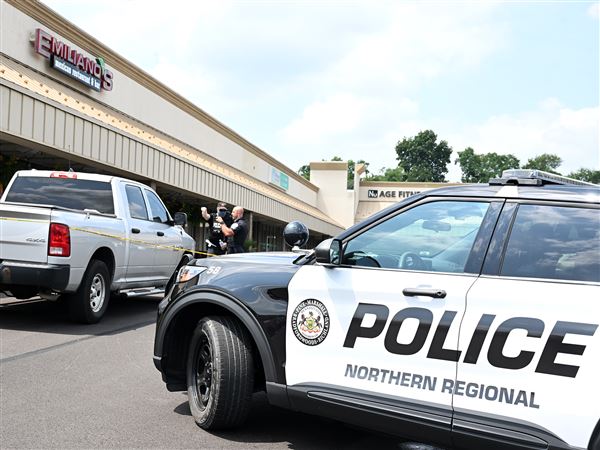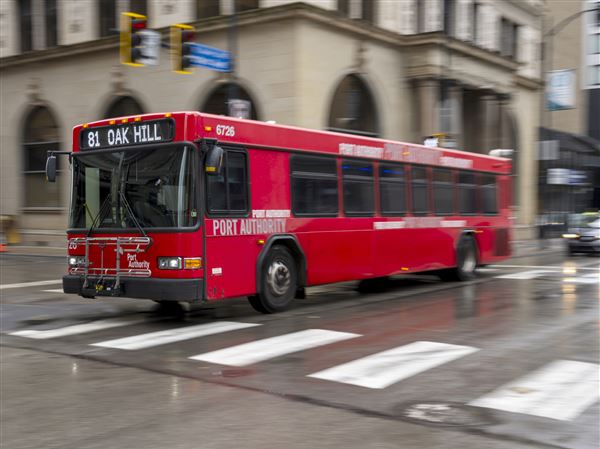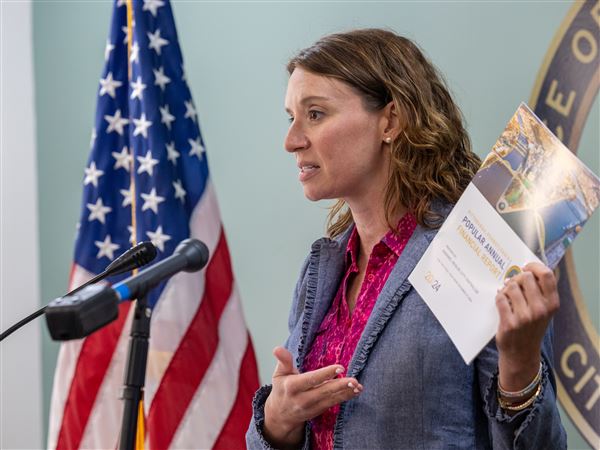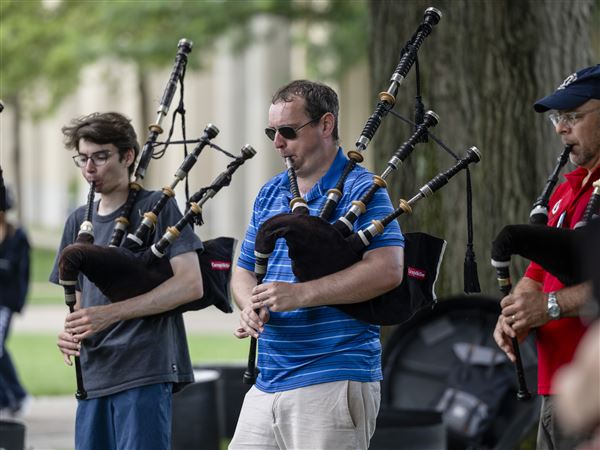Pennsylvania legislators' unconstitutional mid-term pay grab a couple of summers ago helped bring 50 new members to the state House once the ballots were counted last fall.
How much change that really brought remains the question. Democracy Rising Pennsylvania, which advocates massive structural reform of our statehouse, recently offered a thumbnail analysis that shows the newcomers are voting with the party leadership so often "it makes the first-term lawmakers almost indistinguishable from the veteran lawmakers.''
Looking at more than 200 important votes, the group found that freshman Democrats voted with their leader, Rep. Bill DeWeese of Greene County, 90 to 98 percent of the time. Freshman Republicans voted with their leader, Rep. Sam Smith of Punxsutawney, 69 to 86 percent of the time.
Now, to be fair, just because a party leader favors something doesn't mean it's wrong. Tim Potts, co-founder of Democracy Rising, says he plans a more detailed analysis, but adds, "Some of those freshmen will get knocked off next year because they're not walking the walk.''
Two of the more independent voters were from this area. Rep. Lisa Bennington of the city's Morningside neighborhood voted "only'' 209 of 232 times (90 percent of the time) with Rep. DeWeese. That's the second lowest number among Democrats. Rep. Jim Marshall, the Beaver County giant killer who upset Democratic Whip Mike Veon last November, voted only 188 times with the Republican leader, Mr. Smith. That's a rate of 81 percent.
"I didn't get hired by my party,'' Rep. Marshall said. "I don't work for my party. I work for my people.''
He says he never looks at the board to see how Mr. Smith is voting.
Rep. Bennington was proud to be among the more independent voters.
"I don't even see it as leadership voting this way, and this is how I'm supposed to vote,'' Rep. Bennington said. "I read the bills, I figure out what's right and vote accordingly. I've never felt like this is what leadership is doing so this is what I have to do.''
Regardless, she said, she respects Rep. DeWeese's leadership. He and other party leaders listened to those who didn't want the Keystone fund raided to balance the budget. That fund provides money for libraries and the conservation of parks and open spaces. The House rejected a plan to whittle it, though it will revisit the issue this fall.
This column is generally not where you go for a kind word about Rep. DeWeese, who helped orchestrate that 2005 pay grab. So I called him. He was his jovial, loquacious self, but he insisted he was a changed man.
"I am a modern-day simulacrum of Nixon going to China,'' he said. "I am now a reformer.''
My dictionary offers as one definition of simulacrum: "an insubstantial form or semblance of something.'' Rep. DeWeese, a survivor, has listened to the new wave of legislators whose goals are "reforming our internal processes and making strenuous efforts toward enhancing Pennsylvania's natural environment.''
Though the threatened $40 million in that Keystone fund was a sliver of the state's $27.2 billion budget, a score of representatives such as Mr. Bennington let Gov. Ed Rendell and Senate Republicans know they wouldn't budge, Rep. DeWeese said. Environmentalists won that battle.
Reform of America's Largest and Most Expensive Full-Time State Legislature was put on the back burner as it grappled with, and finally approved, the budget, 16 days late. Along the way, the House suspended new rules requiring a 24-hour wait before a final vote on amended bills.
"They will suspend the rules anytime it's inconvenient,'' Mr. Potts said. "The more important and expensive the issue, the less likely they will give the citizens time to know and comment on what's going on.''
Rep. DeWeese promised "to work strenuously to make sure [Mr. Potts'] projection is not accurate.'' But Rep. Bennington questioned the worth of that 24-hour wait. Is the public really reading these bills in that time?
Important reforms, such as term limits and shrinking the size of the Legislature, "haven't been touched,'' she said.
On those reforms, she and Rep. DeWeese will never agree. Proud to once have been the second House speaker from Greene County in the 20th century, Rep. DeWeese doesn't think rural counties could ever make that claim if the Legislature were smaller.
The truth is that reducing the number of seats would increase the size of remaining districts, so the proportional rural/suburban/urban split should remain constant. Following the models of smaller legislatures in Ohio and Illinois also would save tens of millions of dollars each year. That can help solve budget problems.
Rep. DeWeese allowed that downsizing the statehouse is worthy of debate, and offered a unique way to slice it by 50 members.
"Get rid of the state Senate.''
First Published: July 19, 2007, 3:00 a.m.













